30 Days Wild Case Study - Welly Walkers Childminding Family

In advance of the annual 30 Days Wild campaign starting again this coming weekend, we caught up with Christine from Welly Walkers Childminding Family in Aberdeenshire, a registered childminding setting that works in tandem with Aberdeenshire Council. Last June, we noticed a lot of posts being shared by Welly Walkers on Facebook, featuring our 30 Days Wild outdoor maths resources. We were delighted to see a group getting so involved, and asked Christine if she’d be willing to answer a few questions about their experience of using the resource, to which she kindly agreed.
Would you say a nature-based approach is important to you?
Yes, absolutely! Also trying to slow down and take our time in nature, looking for patterns, listening to sounds, feeling the textures. We live in such a rush-rush society. Having the maths activities made us focus. There’s a lot of maths in nature - patterns, size, measures…
How did you use the Maths Week Scotland resources?
We used them alongside the Wild Life Trust ones. I feel it’s super important to get the maths in there as well, and the children really enjoy it. It worked well, though sometimes it worked better to focus on just one or the other. But what I liked about the maths resources was you could do them quite lightly or you could go more in depth. For example, the one with the angle hunt the children got really in to – they were finding angles everywhere
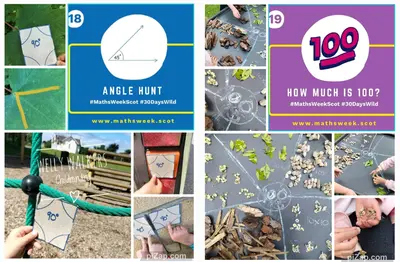
What ages where the children doing the activities?
The age of the children was 3 to 5. The little ones just follow on and copy what the older ones do, learning from their peers. I also have some older children, up to the age of 10, who come for after school care, so they could take part in the activities after school if they wanted to.
What did you think of the resources?
I really like the maths resources - there’s quite a lot of resources out there for literacy, but I feel there’s not the equivalent for maths. So they are really useful for including some more maths in our outdoor play. I try my hardest not to project a fear of maths on to children I care for.
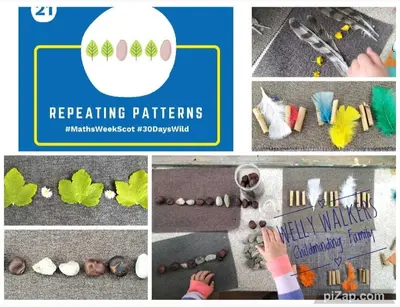
Did you do all the activities, or did you pick and choose?
I work a four-day week, so we did about 16 to 20 of the activities in total. Normally I would let the children choose their activities, but I had to watch which ones maybe needed a bit more organisation. For example, the geo caching required some pre-planning.
How were the activities received by the children? Did they enjoy them?
Yes, they really enjoyed doing all the different activities. It was quite exciting to see them being excited! Running around with their pieces of cardboard looking for angles.
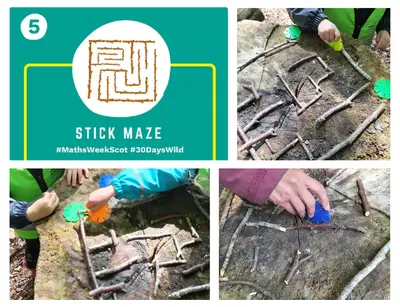
Did you have any favourite – or least favourite - activities?
My least favourite was probably the geocaching, there was no guarantee that the caches from the app would actually still be there. The angle hunt was a big success, and we really liked all the activities about patterns. Fractals and Fibonacci patterns. Another favourite was making a maze out of sticks. We did it in the woods. We made a maze for them, see if they can get from one side to another. By the end they were making a maze for us to get through! It was really good.
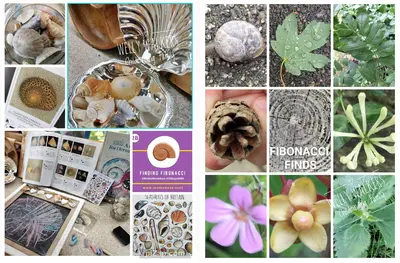
All images shared with kind permission from Welly Walkers Childminding Family via Facebook.
Thank you so much, Christine, for taking the time to talk to us and for sharing so many great photos of the activities! We hope it’s given our readers a bit of an insight in to seeing our 30 Days Wild resources being used in the wild (pun fully intended!) And you don't have to stick to June to do them, you can use them all year round.
Our 30 Days Wild resources include a downloadable calendar, 30 digital postcards, descriptions for each of the activities, and a "We're going wild" graphic to use on social media. The resources are available in English and now also in Scottish Gaelic.
Latest News and Events

STEM Ambassadors in Scotland Week 2026
STEM Ambassador in Scotland (SAIS) Week is a celebration of all things STEM in Scotland through the experiences of our STEM Ambassadors.
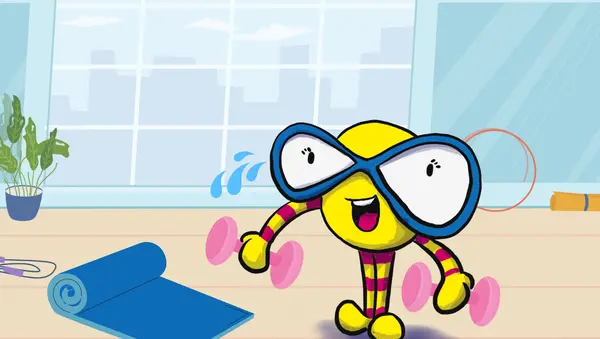
Active Maths Challenge
Start the year with our mini Active Maths challenge and measure what progress you can make over four weeks.
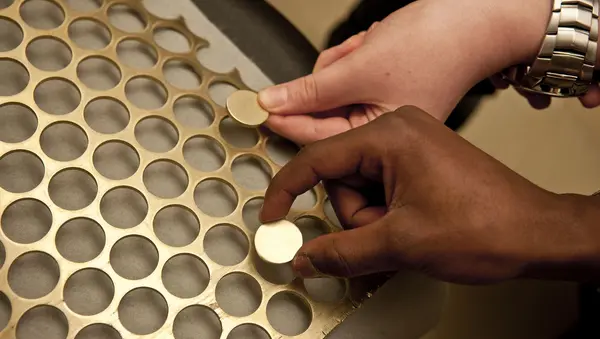
Money Maths at Museum on the Mound
We are excited to offer Maths versions of our popular money-themed schools workshops. These are entirely free of charge. Best suited for P5-P7 pupils.